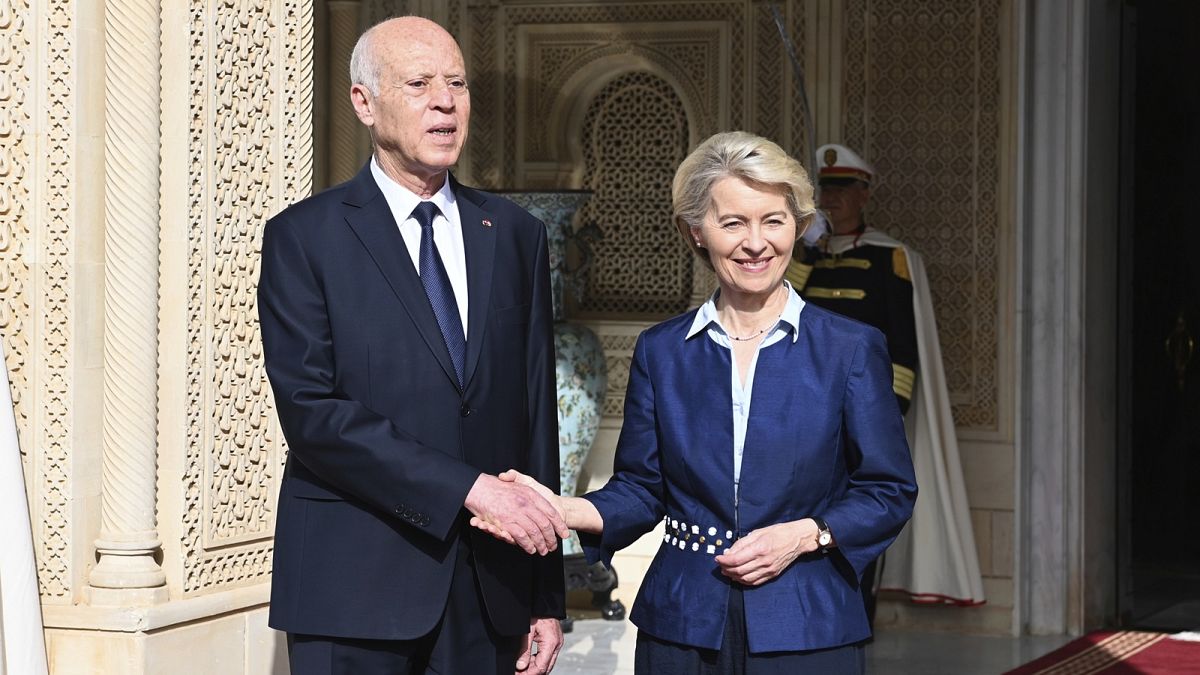The European Ombudsman is seeking clarifications on the contentious EU-Tunisia deal signed in July amid concerns of human rights violations.
The watchdog body, led by Emily O'Reilly, wants the European Commission to spell out what sort of safeguards, if any, have been introduced in the agreement to make sure the Tunisian authorities respect fundamental rights in their operations to curtail irregular flows of migration.
The Commission has until 13 December to explain whether it carried out an "impact assessment" before concluding the deal on behalf of all EU states and how it intends to review the impact on human rights over time.
"The Ombudsman also asked whether the Commission has defined criteria for suspending funding if human rights are not respected," the watchdog said in a press release, noting that "concerns have been raised about the agreement."
The letter comes a day after Tunisia denied entry to a five-member delegation of the European Parliament and further increases scrutiny over the contentious deal.
So far, the EU-Tunisia agreement has earmarked over €700 million in bloc funds to help Tunisia stabilise its economy, manage migration and boost renewable energy, and includes the possibility of an additional €900 million in macro-financial assistance.
'Documented abuses' against migrants
While no amount of money has been released yet, the agreement has attracted intense criticism from the European Parliament and civil society organisations.
They say Tunisia, under the strong-arm leadership of President Kais Saied, has repeatedly engaged in human rights violations and orchestrated the forceful deportation of sub-Saharan migrants, many of whom have been found abandoned in the middle of the desert near the Libyan border.
Shortly after the signature of the deal, Human Rights Watch released a report detailing the "documented abuses" that Tunisian law enforcement had committed against black Africans, such as "beatings, use of excessive force, some cases of torture, arbitrary arrests and detention, collective expulsions, dangerous actions at sea, forced evictions, and theft of money and belongings".
Saied has been a particular target of criticism. The Tunisian president has publicly expressed his racist views of sub-Saharan migrants and denounced what he calls a "criminal plan to change the composition of the demographic landscape of Tunisia," incendiary words that echo the far-right conspiracy theory known as the "great replacement."
Despite the concerning evidence, the European Commission pushed ahead with the signature of the memorandum, arguing it was necessary to establish a closer partnership with a country that represents a gateway for thousands of migrants who every year attempt to enter the bloc, mainly through Italy, and request asylum.
European Commission President Ursula von der Leyen has touted the deal as a blueprint for similar arrangements with neighbouring countries.
"We have signed a partnership with Tunisia that brings mutual benefits beyond migration; from energy and education, to skills and security," said von der Leyen in her State of the Union speech. "And we now want to work on similar agreements with other countries."
€105 million for migration
Specifically, the memorandum allocates a financial envelope of €105 million to combat anti-smuggling operations, reinforce border management and speed up the return of asylum seekers whose applications are denied.
The money, which is the crux of the Ombudsman's concerns, is expected to be provided to the Tunisian authorities in the form of search-and-rescue boats, jeeps, radars and drones; and to international organisations that work on the ground, like the International Organization for Migration (IOM) and the United Nations Refugee Agency (UNHCR).
The promised €105 million is still under negotiations and needs to be translated into a legal instrument before disbursements begin, said a European Commission spokesperson. Member states will be consulted across the process.
"We will cooperate with the Ombudsman and we will be replying in due course," a spokesperson said on Friday afternoon. "Broadly speaking (...) all EU contracts obviously have standard clauses of human rights."
Senior EU officials have previously said payments would not be linked to any numerical target of annual readmissions or reduction of arrivals, and Tunisia would not be asked to host in its territory non-Tunisian nationals who have been denied asylum in the bloc.
"Tunisia is not foreseen to be a collecting point for irregular migrants," a senior EU official said in July, speaking on condition of anonymity.
